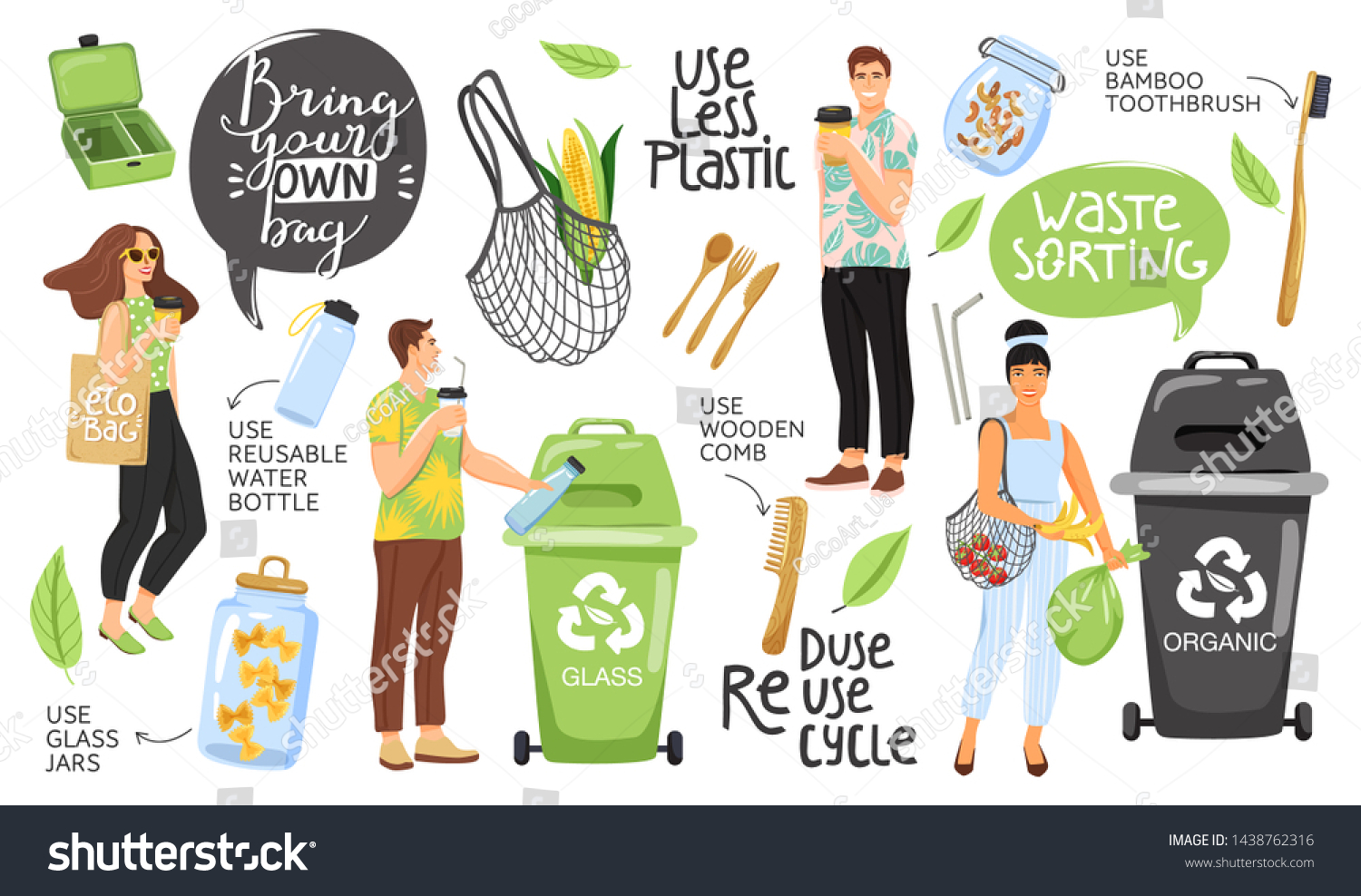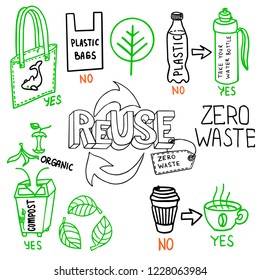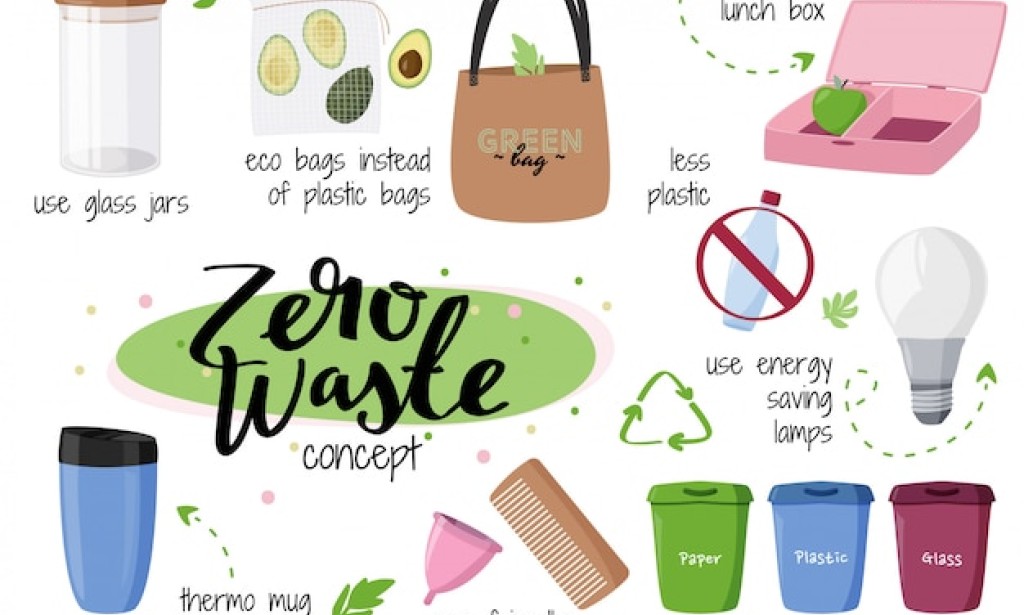Table of Content
- What is zero waste?
- Benefits of a zero waste lifestyle
- Practical tips for embracing zero waste
In a world dominated by consumerism and excessive waste generation, adopting a zero waste lifestyle has emerged as a powerful way to combat environmental degradation and create a sustainable future. Zero waste living is a philosophy and a set of practices that aim to minimize waste generation, conserve resources, and reduce our ecological footprint. By making conscious choices about what we consume and how we dispose of our waste, we can make a significant impact on the health of our planet. This article explores the principles and benefits of a zero waste lifestyle and provides practical tips to help you embark on this transformative journey.
What is Zero Waste?
Zero waste is a philosophy that encourages the redesign of resource use and waste management systems, with the ultimate goal of eliminating waste altogether. It involves rethinking our consumption patterns, making sustainable choices, and adopting a circular economy mindset. The key principles of zero waste living include refusing, reducing, reusing, recycling, and composting. By following these principles, we can minimize the amount of waste that ends up in landfills and incinerators, and instead, create a closed-loop system where materials are reused or recycled.

Benefits of a Zero Waste Lifestyle
Embracing a zero waste lifestyle offers numerous benefits, both for individuals and the planet as a whole. Firstly, it helps reduce the strain on natural resources and energy consumption. By consuming less and reusing or repurposing items, we reduce the demand for new products, which often require significant amounts of resources to manufacture and transport.
Secondly, a zero waste lifestyle reduces pollution and greenhouse gas emissions. Traditional waste management methods, such as landfilling and incineration, contribute to air and water pollution, as well as greenhouse gas emissions. By minimizing waste generation and promoting recycling and composting, we can mitigate these environmental impacts.
Thirdly, a zero waste lifestyle promotes mindful consumption. It encourages us to think critically about our purchases and opt for products with minimal packaging, made from sustainable materials, and produced ethically. By doing so, we support businesses that prioritize sustainability and send a clear message to industries that we value environmentally friendly practices.
Practical Tips for Embracing Zero Waste
Refuse:
Say no to single-use items such as plastic bags, straws, and disposable cutlery. Instead, carry your own reusable alternatives like a cloth bag, stainless steel straw, and bamboo cutlery set.
Reduce:
Minimize your overall consumption by buying only what you need. Before making a purchase, ask yourself if you truly need the item or if there's a more sustainable alternative.
Reuse:
Embrace the concept of reuse by opting for secondhand items whenever possible. Visit thrift stores, participate in clothing swaps, and repair or repurpose items before considering a replacement.
Recycle:
Learn about the recycling facilities available in your area and ensure that you properly sort and clean recyclable materials. Familiarize yourself with local recycling guidelines to avoid contamination.
Compost:
Start composting organic waste like food scraps, yard trimmings, and coffee grounds. Composting not only reduces landfill waste but also creates nutrient-rich soil for gardening.
Meal Planning:
Plan your meals to avoid food waste. Make a shopping list and buy only what you need. Use up leftovers creatively or freeze them for later use.
DIY and Upcycling:
Explore do-it-yourself projects and upcycling ideas to breathe new life into old items. Repurpose glass jars as storage containers or transform old clothing into new fashion pieces.
Support Bulk Shopping:
Purchase items from bulk bins to minimize packaging waste. Bring your own reusable containers and fill them with grains, nuts, and other dry goods.
Eco-Friendly Cleaning:
Make yourown cleaning products using natural ingredients like vinegar, baking soda, and essential oils. This reduces the need for purchasing and disposing of chemical-laden products in single-use plastic bottles.
Sustainable Transportation:
Opt for walking, cycling, or using public transportation whenever possible. If you need a vehicle, consider carpooling or investing in an electric or hybrid vehicle to reduce emissions.
Conscious Gift Giving:
Choose thoughtful and sustainable gifts that align with the values of zero waste living. Consider experiences, consumables, or eco-friendly products that promote a sustainable lifestyle.
Educate and Inspire Others:
Share your knowledge and experiences with others to inspire them to adopt a zero waste lifestyle. Engage in conversations, host workshops, or use social media platforms to raise awareness about the importance of waste reduction.
Remember, transitioning to a zero waste lifestyle is a journey, and it's essential to be patient with yourself. Start small, focus on one aspect at a time, and gradually incorporate more sustainable practices into your daily routine. Every small action counts, and together, we can make a significant impact on the health of our planet.

Embracing a zero waste lifestyle is not only beneficial for the environment but also for our well-being. It encourages us to live more intentionally, be mindful of our choices, and prioritize experiences over material possessions. By adopting a zero waste mindset, we contribute to the creation of a more sustainable and equitable world for current and future generations.


You must be logged in to post a comment.